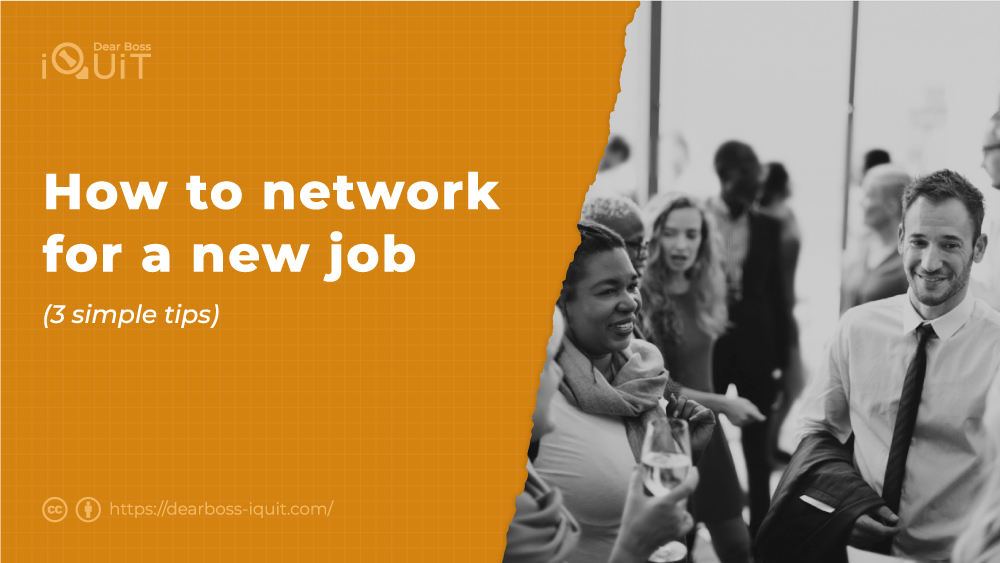Networking is a means of building professional relationships in the business world. These mutually beneficial relationships can come in handy when looking for a new job. But if you’re put off by going to people and introducing yourself, don’t be, as networking is something every business professional does.
This guide will cover the topic of networking, how it benefits you when looking for a new job, and how to do it. We will cover all aspects of the topic to ensure you have the best chance of landing a new job.
With that said, let’s start.
What is Networking?
For many people, networking simply means going to people and introducing yourself, perhaps even handing them your business card. But networking is far more powerful than you can imagine. Networking is the idea of building a professional relationship with other professionals in your industry.
The newly found relationship serves both parties equally, meaning the people you meet can perform a certain role and vice versa. The goal of networking is to add as many professionals to your digital Rolodex, so you will always have a contact to turn to solve a particular business issue.
Since the topic of discussion is looking for a new job, the people you meet through networking will hopefully help you do that.
How Networking Helps You Find a New Job?
We can use networking for a wide range of tasks. For example, we can use it to identify potential business partners and customers and even find a new job. Simply put, the professionals in your digital Rolodex should offer something to you. So that begs the question, how does networking help you find a new job?
To explain the power and potential of building a business network regarding employment options, we must look at why people network. And we keep returning to the same thing – networking helps establish professional relationships.
Think about it for a second. Consider yourself an employer who attends an online networking event in hopes of meeting business professionals. You’re more likely to want to work with someone you know than a complete stranger. Networking helps turn strangers into familiar faces.
To properly explain the power of networking regarding employment, consider the following:
- People are more likely to do business with people they like and know. For example, suppose a business owner attends a networking event in hopes of identifying potential employees. In that case, the person they meet has a bigger chance of landing the job than someone else.
- Some employers also prefer networking as opposed to scanning resumes and cover letters. But most importantly, a business owner who attends networking events for that specific reason will be more willing to give you a chance.
- Cover letters and resumes take time and energy to go through. Some businesses cannot employ recruitment managers to go over the recruitment process.
Although putting up a job application gives businesses more means to identify quality employees, networking is a replacement as it hastens the recruitment process and identifies familiar faces for the job.
When looking for a new job, we tend to look for better-paying options, more beneficial options, and options that suit us. Networking makes it easier to discover these options as it helps you uncover information faster, even before the job application is announced.
These three benefits cover the position of employers and job seekers. If you have a network of entrepreneurs and business owners looking for employees, there’s a real chance to land the job by knowing the person and them being familiar with your qualities. So that begs the question, how do you network for a new job?
How to Network For Better Employment Options?
Not everyone is happy with their current employment. This leads to job searches where we look for jobs that make us feel mentally happy. If you’re a regular at networking events, you will have an easier time making calls to professionals in your network in hopes of securing a new job. But if you’re reading this guide, chances are you do not have an established network of professionals.
If so, this guide is for you. But, first, let’s look at how to network for better employment options.
1. Attend Networking Events
The best way to form a network is to do what everyone does – attend networking events. Networking events are your best option when meeting business professionals and entrepreneurs needing quality workers. Granted, not every professional will need your services, but adding them to your professional network exposes you to their network.
If they like you, they will refer you to someone else in their network who needs your services. Remember that networks go both ways, i.e., you are meant to help someone in your network with an issue. And if the business professional you meet knows someone who needs quality employees, they will refer you.
2. Offer Your Services
The best way to land a new job is to offer your services to your network. Once you establish a network of individuals, the next thing to do is to offer help. Even if the business contact doesn’t need your service, you make yourself visible to your network regarding potential employment. Again, we come back to the same thing in the previous tip – someone in your network might know a separate business contact that requires your services. But it’s important to improve visibility and expand your reach as much as possible.
3. Use Social Media for Increased Reach
Networking comes in many forms, and social media is one of the more popular ways to network for a new job. Social media platforms make it seamless to connect with anyone. You can use Facebook, Twitter, and Instagram to aid job-seeking by connecting with entrepreneurs and employers.
However, using social media for networking and employment means using the intended channels – LinkedIn. LinkedIn is the social media for business professionals. So shore up your social profiles, but don’t forget about LinkedIn.
Conclusion
Networking is a tool that benefits you in a myriad of ways. Therefore, every business professional must start networking as early as possible. By forging professional relationships with people within your industry, you make it easier to find a new job should the occasion arise.


